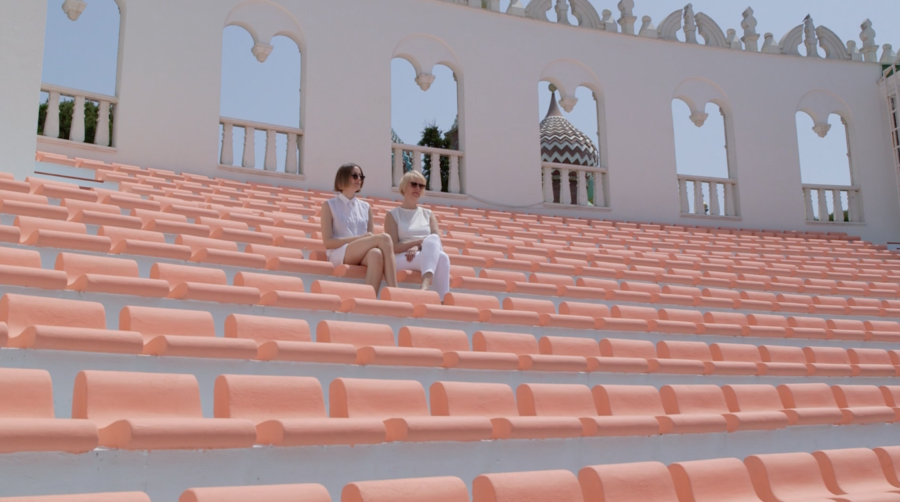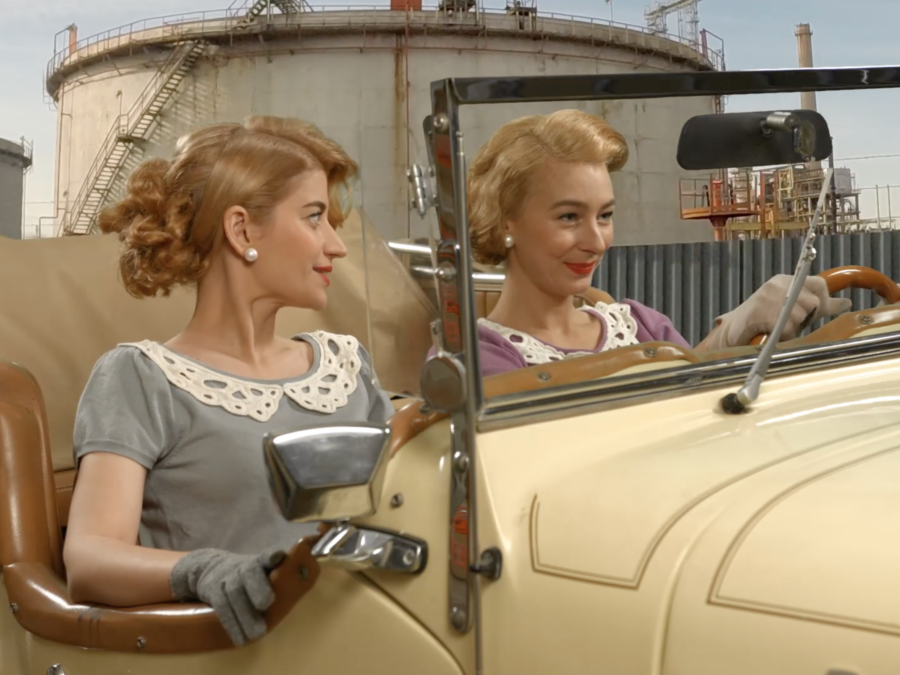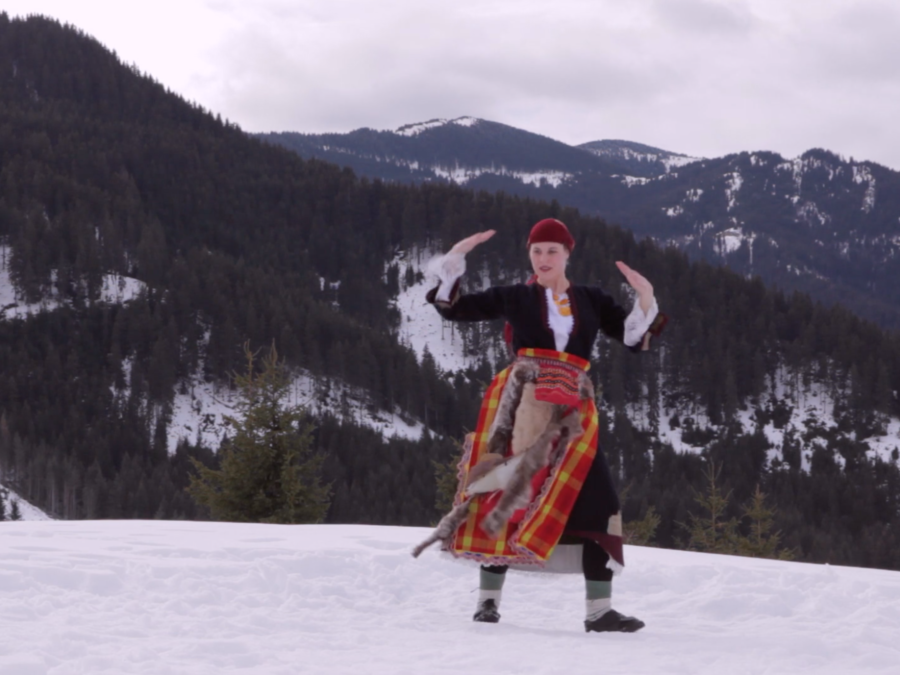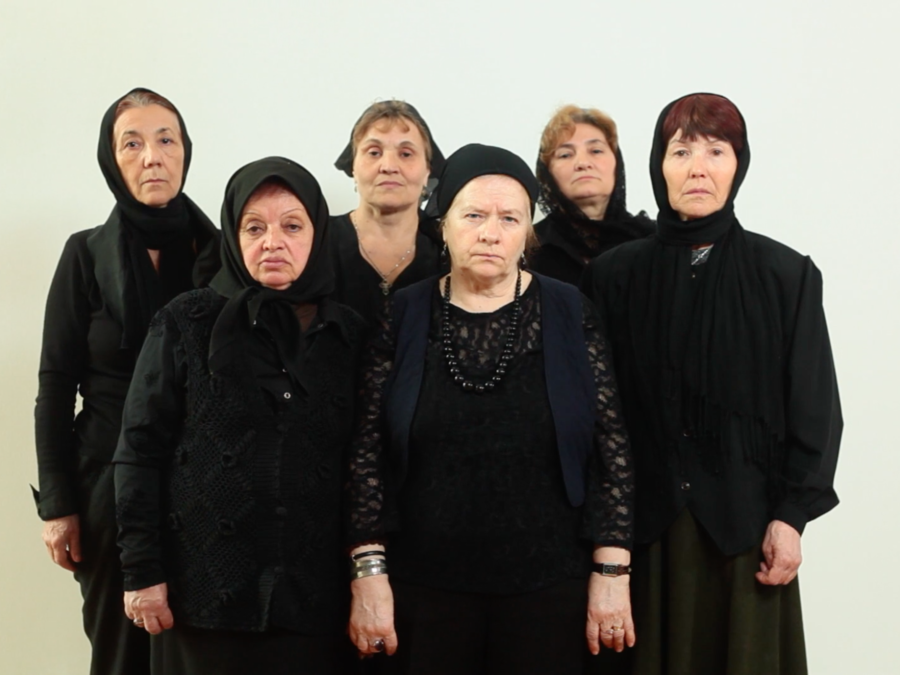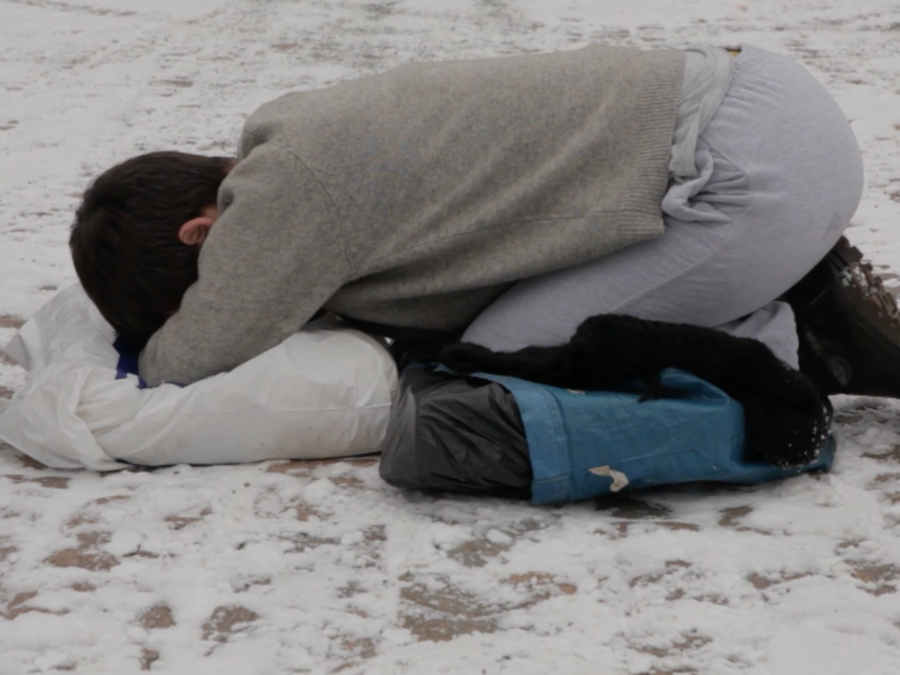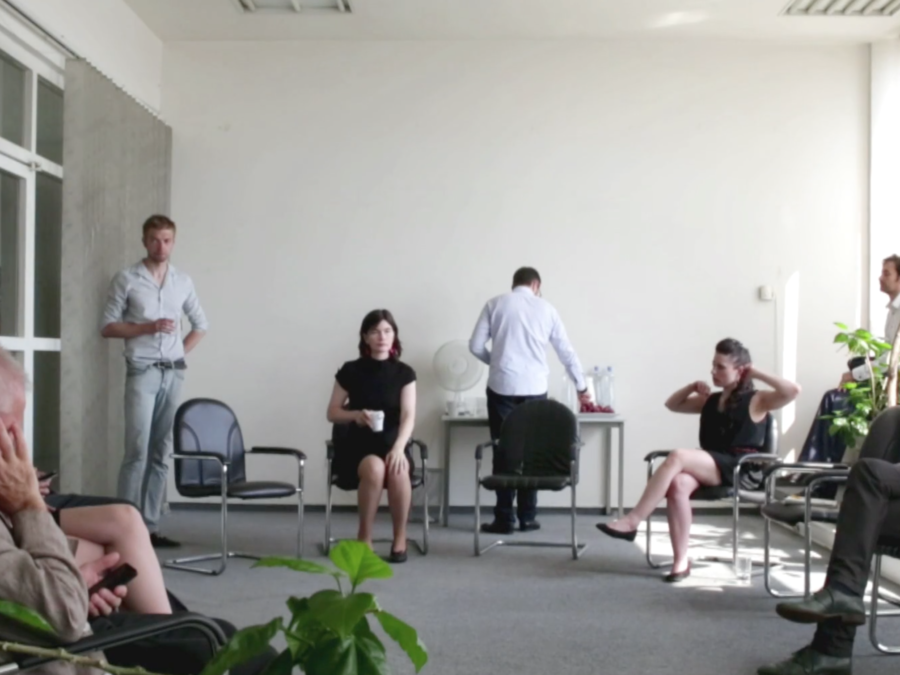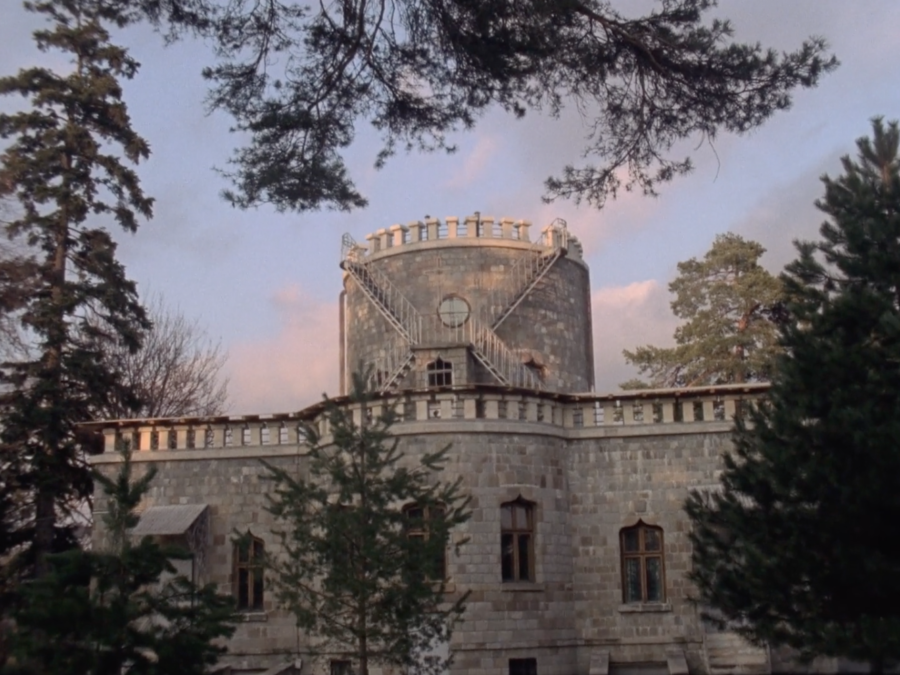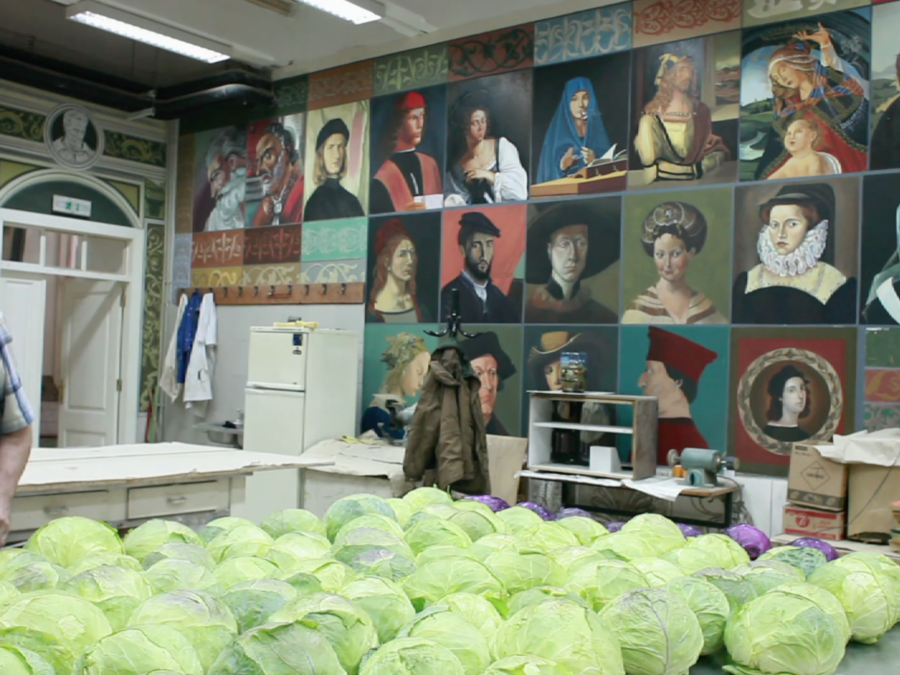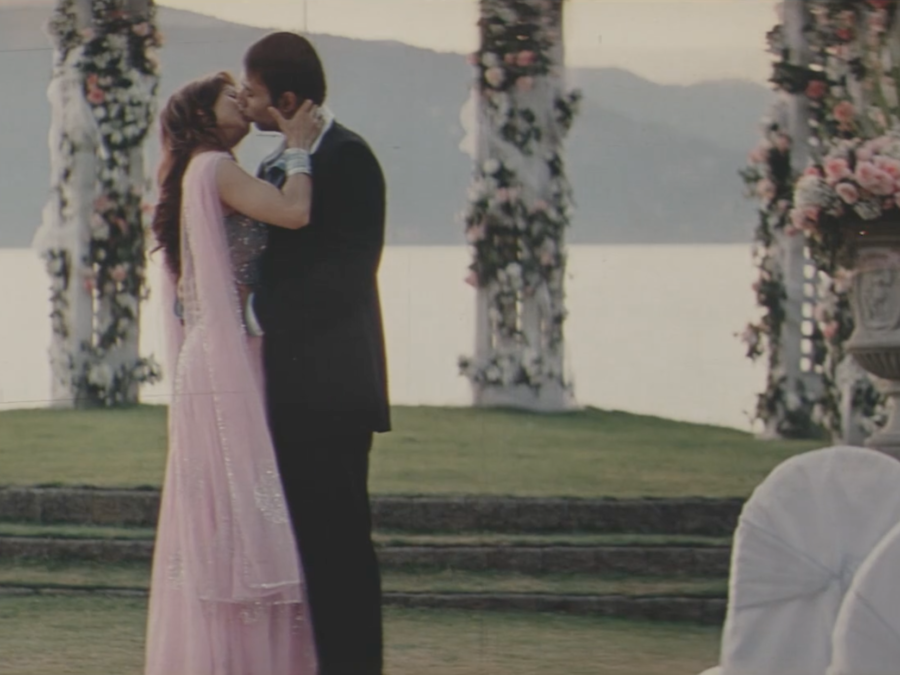Two decades after the fall of the Iron Curtain, many of the former communist countries are taking architectural measures meant to erase the communist experience and drag them closer to an idealized inter-war past. At the same time, in the “West” we are witnessing a growing nostalgia for an utopian “Eastern” past that never existed. This manifests itself as a new demand for ruin porn: abandoned buildings, derelict infrastructures and abandoned ambitions. At a spectrum opposite to ruin porn, but within the same vein, are the replicas of historic buildings. The retro-futurist ruins and the bold new retrograde Disneylands go hand in hand. Both devoid of the past meaning, they turn symbols into accessories for consumer experience. In the year 2004 Sasha Litvintseva’s mother was confronted with the state’s rigid politics towards her working place and contemplated leaving Russia. Due to the state’s limitation of citizens’ free movement, the only places she could go to without a pre-arranged visa were holiday destinations such as Egypt, Turkey and Thailand. So Sasha’s mother bought herself an off-season deal and took off to Egypt. And even though she was the only client, the hotel personnel treated her to their entire entertainment package. Sasha’s mother contemplated her displacement while sipping on piña colada. Shortly after the trip, she started to live in exile. Eleven years later, still not being able to return to Russia, Sasha and her mother procure themselves a strange surrogate: a trip to Antalya, to a hotel that represents a replica of the Kremlin. This apolitical, decontextualized building in Exile Exotic (2015) is the pretext for a series of reflections about the historical symbols’ trajectory outside of history, the politics of borders as well as the role of architecture, place and identity in configuring the idea of motherland.
Sasha Litvintseva graduated from the Slade School of Fine Art (UCL) in London and is currently working on a practice-based PhD on the concept of geological filmmaking at Goldsmiths, University of London. Besides her practice as an artist and filmmaker, she works as a curator of contemporary moving image and as a co-curator of the November Film Festival (forthcoming). Her research and films are situated at the intersection between embodied historical and geological temporalities and materialities. Her work has been screened and exhibited worldwide, such as at the Moscow Museum of Modern Art (2016), 5th Moscow Biennale for Young Art (2016), UnionDocs Center for Documentary Art, New York (2016), Cinema Du Reel, Paris (2016), Kunstverein Göttingen (2016), 16th Wro Media Art Biennale, Wroclaw (2015), Institute of Contemporary Arts (ICA), London (2015), Image Movement, Berlin (2015).
